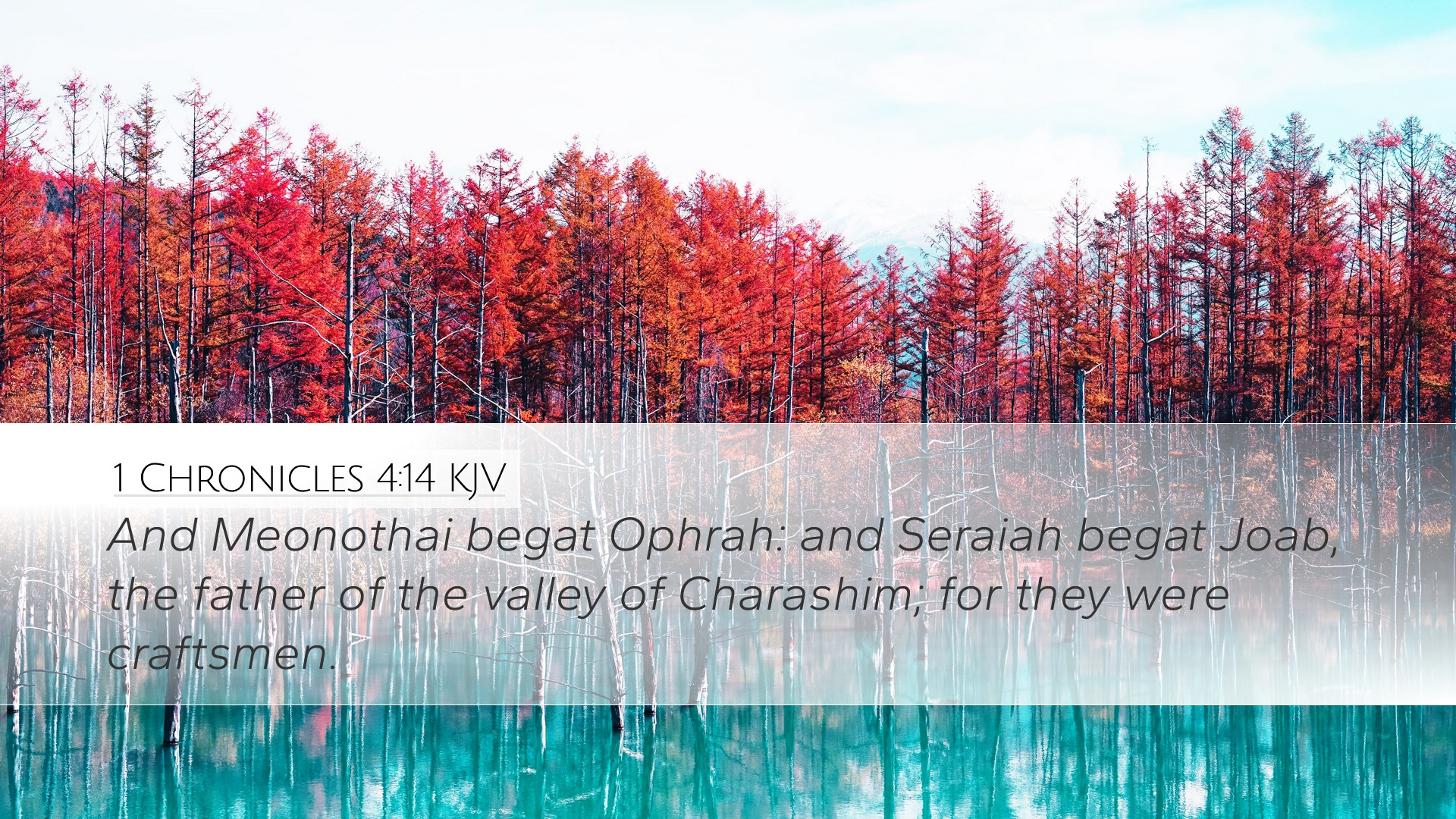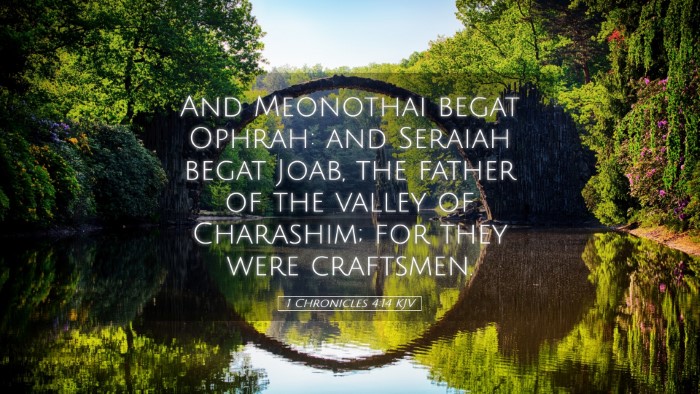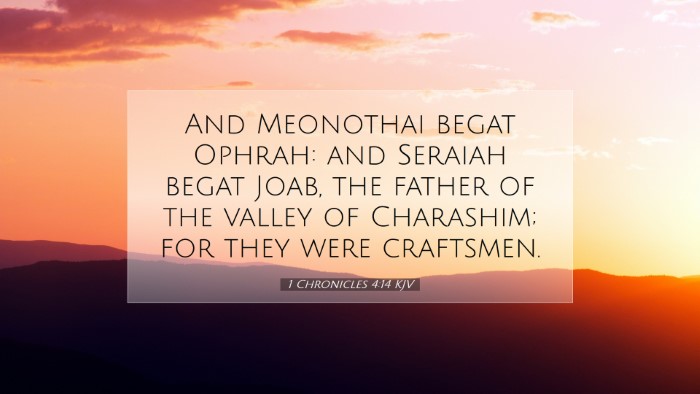Commentary on 1 Chronicles 4:14
Verse Text: "And Mehir the father of Eshton. And Eshton begat Beth-rapha, and Paseah, and Tehinnah the father of the city of Nahash; these are the men of Ricah."
Introduction
This verse from 1 Chronicles provides a genealogical snapshot that, while appearing straightforward, offers a wealth of insight into the significance of lineage, the role of family structures, and the preservation of history within the ancient Israelite community.
Genealogical Significance
Genealogies in the Scriptures, particularly in Chronicles, serve multiple purposes:
- Validation of Heritage: Each name mentioned carries with it a legacy, validating the heritage and identity of those within the community.
- Historical Context: The lineage helps contextualize the narrative surrounding David's reign and the eventual restoration of Israel, linking identities directly to royal and priestly lines.
- Divine Providence: The preservation of these genealogies highlights God's intricate weaving of history and His plan for Israel's future.
Interpretation of Names
The names listed in this verse can provide deep theological insights:
- Mehir: The father of Eshton, whose name signifies "to acquire" or "to gain." This could imply a historical context of acquiring land or resources for the community.
- Eshton: His name is tied to the establishment of families, importantly noted for the lineage proceeding from him.
- Beth-rapha, Paseah, and Tehinnah: Their mention indicates the importance of geographical locations and communities, which were often named after key family members or founders.
Historical and Cultural Context
To understand this verse fully, it is also crucial to look at the broader cultural landscape:
- Societal Role of Lineage: In ancient Israel, a person's worth and status were often determined by their genealogy. Understanding one’s lineage was crucial for claims to land and positions in society.
- Cities Named for Individuals: The reference to the "city of Nahash" indicates the importance of individuals in the founding of places, which is a common practice in ancient societies.
Theological Reflections
Pondering the implications of family and community:
- Value of Legacy: In today’s context, the names and legacy of those who have come before us continue to shape our identities, analogous to the significance of these genealogies.
- Community Building: Much like the early Israelites, modern believers are called to build communities rooted in shared histories and values.
- Faithfulness Through Generations: These genealogies remind the faithful of God's ongoing narrative in history; our commitment to Him affects generations.
Applications for Church Leaders and Scholars
As pastors and theologians engage with this text, several applications emerge:
- Teaching on Heritage: Expound upon the importance of church heritage and the significance of community within the church family.
- Encouraging Personal Reflection: Encourage congregants to reflect on their own family heritage and to seek how God has worked through their ancestors.
- Catechesis on God’s Providence: Illustrate how God's providence is woven through family lines and histories, promoting a view of life that sees divine purpose behind history.
Conclusion
In summary, 1 Chronicles 4:14 presents a seemingly simple historical record, yet it invites us to delve deeper into themes of family, identity, and divine sovereignty. As we consider this passage, may we recognize the importance of our own generations and the heritage we carry, inspired to reflect the faithfulness of God throughout our legacies.


